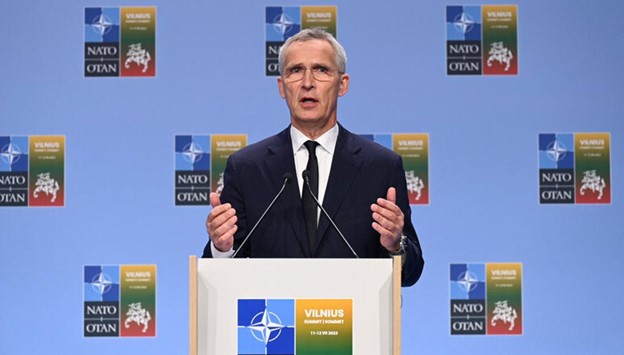Last week at the NATO Summit in Lithuania, Georgia once again was not offered a formal Membership Application Plan (MAP). Tbilisi first indicated in 2002 it was willing to join NATO and then in 2008, with Ukraine, received a promise of future membership, according to Beka Chedia of the Jamestown Foundation. In subsequent years Georgia was told that the government had not yet met the reform requirements required for membership and, therefore, would not be offered a Plan which is mandatory to achieve full Membership. Last week, Ukraine which had been in the same status, was granted permission to skip this step, according to a July 11 report from NATO.
The Georgian case is complicated as several NATO Member states are concerned that should Georgia be admitted into NATO, the alliance could be drawn into a conflict if Russia attacked the country or became too intertwined in it. In late May, NATO’s Special Representative for the Caucasus and Central Asia, Javier Colomina visited Georgia and according to Amerikiskhma.com told authorities there that the alliance expects Georgia to strongly support Ukraine as well as extensive democratic reforms. Chedia adds that “NATO officials have also expressed outrage at the resumption of air traffic between Georgia and Russia.” NATO Secretary-General Jens Stoltenberg added: “We also expect non-NATO Allies to adhere to the sanctions and to not make it easier for Russia to finance and to organize the war of aggression against Ukraine.”
Georgian Prime Minister Irakli Garibashvili at the Global Security Forum in Bratislava this spring pointed out that NATO expansion and Ukraine’s intent to join helped spark the Russian invasion. Frankfurter Allgemeine, a German newspaper says it was this scandalous statement that became the reason why Garibashvili was not invited to the NATO summit, as the alliance itself explained that he was “an undesirable,” according to the Jamestown Foundation.
Last week, US ambassador to Georgia, Ian Kelly suggested that Georgia does not appear interested in joining NATO. “The Georgian government should explain why it is not at this critical summit. Reasonable people will conclude that Georgia is no longer interested in seriously promoting its Euro-Atlantic aspirations.” Georgia’s only representative at the Vilnius summit was Foreign Minister Ilia Darchiashvili. Earlier this month, Estonia’s Prime Minister Kaja Kallas, said in an interview with Radio Free Europe/Radio Liberty, that “The leadership of Georgia right now does not really believe in [NATO membership], so they do not really push that agenda. What does the change in attitude mean? Chedia suggests that until a decade ago, Georgia was trying hard to work with NATO. At the time there was no eastward expansion of the alliance. Last year, after Russia invaded Ukraine, NATO states moved to strongly support an eastward expansion. At the time NATO also designated the Black Sea as a vital region for the alliance organization.
The current pro-Russian ruling elite of Georgia, according to Chedia has suddenly taken an indistinct position. At the same time as the Vilnius Summit, Moscow announced that it was expanding its flights into Georgia to 284 a week. Last year Garibashvili published a first-of-its-kind Facebook post covering his speech at an economic forum in Qatar, saying: “Georgia has territorial problems. We must first resolve this issue and then become a member of NATO.” Two weeks ago, the Georgian publication Netgazeti commented that it appeared to be a sign of capitulation to Moscow. Russia, says Chedia, “has been skillfully using Georgia’s occupied territories for years to prevent the country’s integration into transatlantic structures.” Given Russia’s occupation of two regions in northern Georgia, it would be ineligible for full Membership. However, some Georgian officials are trying to sidestep the issue by urging NATO partners not to follow Russia’s agenda and not to link the membership with Georgia’s territorial challenges.
It may mean that if Georgia backs away from joining NATO this year, Moscow will cut a deal to return the Georgian occupied territories of Abkhazia and South Ossetia. Four years ago, when the Georgian president offered this deal, Moscow turned him down. Chedia says Georgia has broken away from being associated with the classic trio of Ukraine, Moldova, and Georgia in the case of European Union membership. In the case of NATO, Georgia is left alone with only a vague perspective. Chedia suggests that while some see it as an unfulfilled NATO commitment, others say the pro-Russian authorities in Georgia are skillfully using NATO’s indecision to offer Georgian society its alternative geopolitical project for neutrality. This may be the best outcome from Moscow’s perspective.
Daria Novak served in the U.S. State Dept.
Photo: Secretary General Jens Stoltenberg concludes the recent summit (NATO Photo)
